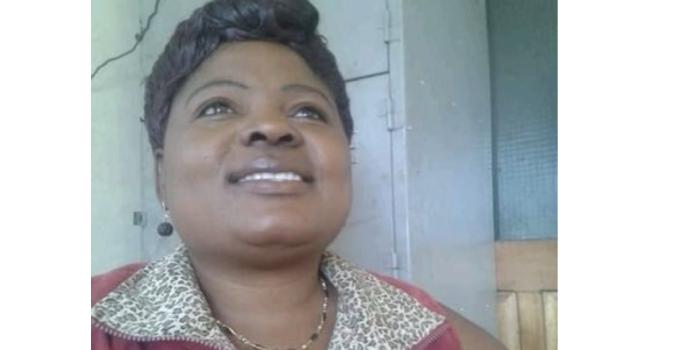
Paidamoyo Muzulu EXACTLY a week ago, the dismembered body of Citizens Coalition for Change (CCC) activist Moreblessing Ali was found in a disused well in Nyatsime, an informal settlement on the outskirts of Chitungwiza.
The political temperatures went a notch high and violence could be smelt from a distance by anyone else except the Zimbabwe Republic Police.
Ali, suspected to have been murdered by a Zanu PF activist, was initially abducted and went missing for two weeks. CCC activists flooded social media with fliers seeking her safe return and even offered a reward leading to her recovery.
Troubled and agitated CCC activists organised a huge search party that saw thousands of activists taking part.
Within hours of the search, a body was found in the disused well within the compound of the suspect’s mother.
Police came in, retrieved the body and took it for tests at Chitungwiza Central Hospital to confirm whether the body was that of missing Ali. The tests came out positive. And a funeral wake began in Nyatsime. CCC activists and Ali’s family demanded that the identified suspect, Pius Jamba, should be arrested.
However, police issued a statement that said the abduction was not political and they were investigating the case. It is now common cause that CCC activists were handling the funeral process of one of their own.
However, surprisingly, a Zanu PF functionary, one councillor Maoeresa went on record to ban the funeral being held in Nyatsime because he did not approve of CCC activists coming to the funeral in their party regalia.
- Chamisa under fire over US$120K donation
- Mavhunga puts DeMbare into Chibuku quarterfinals
- Pension funds bet on Cabora Bassa oilfields
- Councils defy govt fire tender directive
Keep Reading
It is important to note that at this stage, it was only the police that did not feel the tense situation developing in Nyatsime.
CCC activists rightly countered that they would hold a memorial service at the victim’s house beside the purported ban on Monday.
And from there, the rest is history. Zimbabwe is back in the international news for political violence. Once more, the scenes of 2000, 2002 and 2008 are reignited. Zanu PF supporters are a law unto themselves. Being an opposition supporter is a crime. Police are reduced to an institution subordinate to Zanu PF functionaries.
The Ali story cannot be treated in isolation, but can be seen as a trend of police failure to offer personal security, particularly since after independence to opposition political activists. Many people were abducted and killed between 1982 and 1987 during the Gukurahundi era.
Police then became subordinate to the military and in particular, the North Korea-trained Fifth Brigade that was not accountable to anyone except then Prime Minister Robert Mugabe. This was a sad period in the history of Matabeleland and Midlands provinces.
Between 2000 parliamentary and 2002 president elections, hundreds of opposition supporters and civil society activists were beaten, abused or even killed. Police were always on the sidelines.
They did not intervene, giving Zanu PF supporters a carte blanche to commit heinous crimes with impunity knowing they were above the law.
It is instructive to highlight a few cases that were never solved by the police that are politically-connected. A case in point is the burning of Tichaona Chiminya and Talent Mabika in a car in Buhera in 2002 during broad daylight.
No one was immediately arrested and even when they were arrested years later, one of the suspects was a State security agent.
Chiminya and Mabika were aides to opposition leader Morgan Tsvangirai, who at that time was contesting in the presidential election.
In the 2008 general election, Joshua Bakacheza, a driver for the opposition MDC was abducted, killed and burnt. His body was found two weeks later dumped in a forest. No arrest was ever made.
Interestingly, in 2009 after the consummation of the Global Political Agreement, Mugabe passed a decree that pronounced an amnesty to all people facing politically-related charges.
This resembled the same immunity and amnesty given in 1987 after the Unity Agreement that brought an end to Gukurahundi massacres. Perpetrators of atrocities walked scot-free and some were even promoted in the civil service.
In 2009, militias known as the Border Gezi were incorporated into the civil service, most likely as a thank you for the violence that retained Zanu PF in power.
It would be an injustice to fail to mention the abduction of activist and journalist Itai Dzamara in March 2015 in Glen View, Harare, and never to be seen again. Police have not made a breakthrough on the matter seven years later.
These actions and memories remain deeply embedded in the citizens’ minds. They either cow some for life or embolden those who want revenge fully aware the police and the State would not do anything to ensure justice.
Police have an intelligence unit within their structures. It logically follows to ask: what do police proactively do when tension is palpable in the air within communities? They wait for violence to erupt before they can offer security.
Zimbabwe needs healing. Its citizens have been abused for a long time since independence. The prevailing economic hardships make things worse and violence is always lurking on the edges.
Police can help reduce the tension and secure safety of citizens by being proactive and where violence has happened, the swift arrest of suspects and their immediate appearance in court for justice.
It is wrong for the police to wait to receive political instructions to deploy its force or arrest suspects, especially if they are said to be members of the ruling Zanu PF party. The police motto is Pro lege, Pro patria and Pro populo in Latin.
In simple English, it means for the law, for the country and for the people.
However, in reality the police are failing to live up to this maxim and reforms are urgently needed before another case happens ahead of the 2023 elections.











